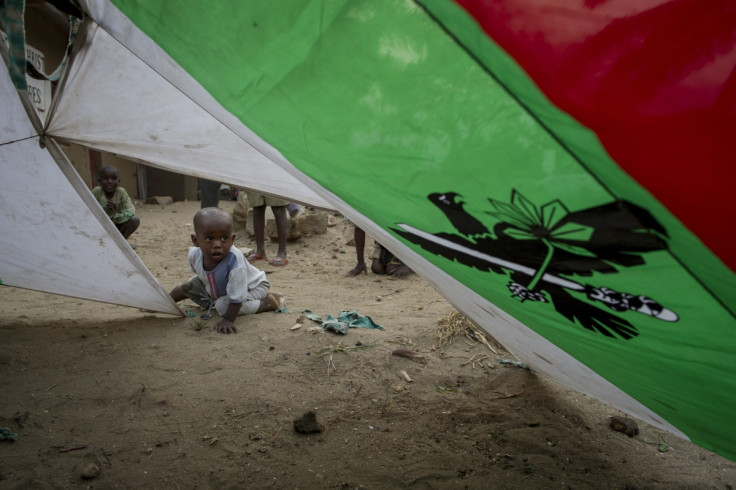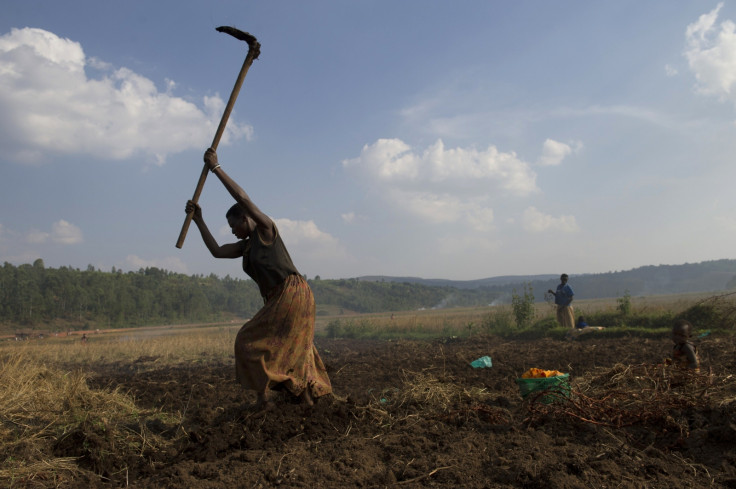Burundi opposition claims government is using hunger as a 'weapon of mass destruction'
3.8m people – 40% of the population – are food insecure but the government says the situation under control.
Burundi's opposition has claimed that the authorities may be using hunger as a "weapon of mass destruction" as the nation's deadly food crisis extends into its second year.
The East African nation's political instability has worsened amid the country's food crisis, which has already claimed victims and displaced tens of thousands in some of the most affected provinces.
The increasingly reclusive government acknowledged that Burundi has serious food shortages, but has not formally declared a famine.
Humanitarian agencies called for international assistance as early as January, when an estimated 40% of the population was food insecure, but President Pierre Nkurunziza this week forbade trucks from the United Nations' World Food Programme (WFP) from entering Burundi.
The Rassemblement des Democrates Burundais (RDB) today (28 April) accused the government of willingly exacerbating the food crisis, brought by heavy rains and droughts that hit crops.
These claims follow news that the authorities banned WFP trucks containing 300 tonnes of beans from entering the country on 21 April. The food was destined for more than 112,000 Burundians and Congolese refugees – all of whom require emergency humanitarian assistance.
"The RDB party is outraged by this criminal decision (...) to deprive more than 112,000 people of the aid they need so much in a country where half of the population is in need of emergency humanitarian aid," it said in a statement.

The Burundian government has appeared increasingly suspicious of the UN and its agencies over the past year. It barred UN employees from entering the country after a UN report accused the government of abuse. The ruling CNDD-FDD party has consistently said it would defend Burundi's sovereignty against "foreign interference".
"The RDB recalls that in recent months, hundreds of people have died of hunger in Burundi, while the de facto government in place makes do with distributing food aid from China solely to militants and supporters of the ruling CNDD-FDD party," the party claimed.
IBTimes UK could not independently confirm that food donated in February by China, which offered emergency food aid (primarily rice) to Burundi in 2016, was selectively distributed.
"This decision to deprive food aid to over 112,000 people is part of the Nkurunziza regime's new modes of oppression, to starve, terrorise and brutalise the people of Burundi to impose total submission" on those opposed to his mandate, the RDB added.
In reference to footage showing men belonging to the youth wing of the ruling CNDD-FDD party singing a song calling for intimidation of political opponents and an incitement to rape, the opposition party said: "After the widespread rape of opposition women as a weapon of war, Nkurunziza now uses hunger as a weapon of mass destruction."
The RDB urged the international community and the East African community to implement the necessary mechanisms to protect the civilian population.
The Burundian government is yet to comment on the claims. It has previously said the crisis was a "deficit" of agricultural production and that the situation, similar to 1981 and 2000, was "controllable".

© Copyright IBTimes 2025. All rights reserved.






















